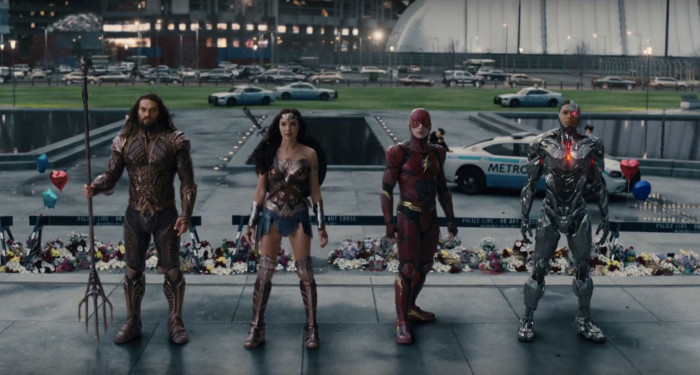DC Entertainment Alters Its Cinematic Universe Plans
If you've been paying attention to blockbuster movies over the past few years, chances are you've asked yourself this question: what the heck is going on with DC Entertainment? It turns out the answer is "quite a lot," and thanks to a new profile, we've learned that DC and Warner Bros. are now rethinking the idea behind their interconnected DC cinematic universe. Could this be the course correction the embattled franchise needs?
Vulture wrote a deep-dive history of DC Entertainment, including the involvement of company president Diane Nelson and Chief Operating Officer Geoff Johns, and the most relevant piece of info is that a shift has happened behind the scenes:
DC and Warner have adopted a new strategy: Let's rethink that whole universe thing. They're not giving up on the idea of continuity, but they want to deemphasize the idea that all of these flicks are occupying the same space. "Our intention, certainly, moving forward is using the continuity to help make sure nothing is diverging in a way that doesn't make sense, but there's no insistence upon an overall story line or interconnectivity in that universe," says Nelson, drawing nods from the top brass around her.
They point to Wonder Woman as an example of this strategy in action; despite its small connection to the larger narrative with a framing story involving Diana (Gal Gadot) receiving a message from Bruce Wayne, it was largely a standalone story. "The movie's not about another movie," Johns said. "Some of the movies do connect the characters together, like Justice League. But, like with Aquaman, our goal is not to connect Aquaman to every movie."
That's good news for the James Wan-directed solo film, which is set to arrive next year. We've all seen what can happen when a superhero film becomes more about another movie than about the individual story it's trying to tell. Batman v Superman: Dawn of Justice was sidelined when Diana essentially took a break to watch teaser trailers for each of the studio's upcoming films, and DC's rivals over at Marvel Studios aren't immune to that pitfall, either: their most egregious example is probably Iron Man 2, but many of their films are arguably a little too worried about connecting the dots to something else in the Marvel Cinematic Universe.
Nelson and Johns did not have creative control over WB's DC movies until recently. While the studio was moving full steam ahead on Green Lantern, Man of Steel, and Batman v Superman: Dawn of Justice – the first was an outright bomb, and the others underperformed and were met with largely mediocre or outright negative reviews. Nelson and Johns concentrated on the rest of DC's properties, revitalizing its comic book sales, producing critically-praised video games, and launching Greg Berlanti's fan-favorite shared universe of TV shows like Arrow, The Flash, Supergirl, and DC's Legends of Tomorrow. After Batman v Superman was released and earned critical ire, the pair were tasked with righting the ship on the film side of things.
"Moving forward, you'll see the DC movie universe being a universe, but one that comes from the heart of the filmmaker who's creating them," Nelson said, continuing to beat the drum of DC Entertainment as a collaborative, director-driven enterprise.
What Will The DC Movie Universe Look Like In The Future?
Making that question even harder to parse is the rash of recent reports about the company's plans for a separate spin-off movie universe that stands alone and has no connection whatsoever to the other films. (Remember that Joker origin movie? That's supposed to be in this standalone universe.) Johns admits that project is in the works, but sounds frustrated with critical community's reactions that the people at DC don't quite know what they're doing:
"Some of the stuff is true, some of it isn't true. When we talk about things or we're making deals for people to develop scripts or whatever, sometimes, things leak; sometimes, things are misreported, and it's frustrating. Because we do wanna go out there and talk about what our strategy is, and this stuff just muddies the water. There's a lot of internal conversations going on about, How do we help kind of clean that up a bit?"
My takeaway from all of this: it seems like they're taking each movie on a case by case basis moving forward, which strikes me as a smart decision. Instead of forcing connections, they're going to let each movie do its own thing, and hopefully, they'll be good enough to get people excited about these characters. After that, of course, the sequels will follow. And even if Justice League disappoints (and we've actually heard that film is good from people who've seen it), Aquaman is on the horizon. It took a rough, bumpy start, but it sounds like DC Entertainment finally has a united vision for their movies...even if the movies themselves may not be quite as connected as we all assumed.

